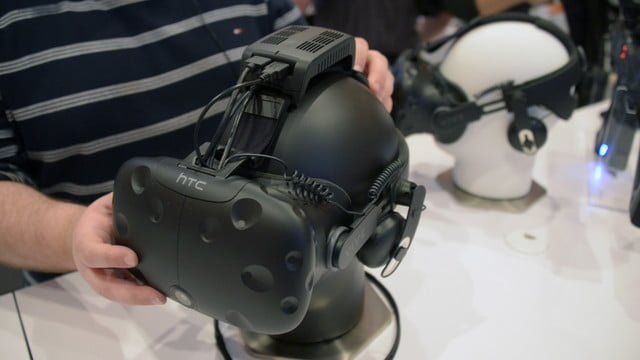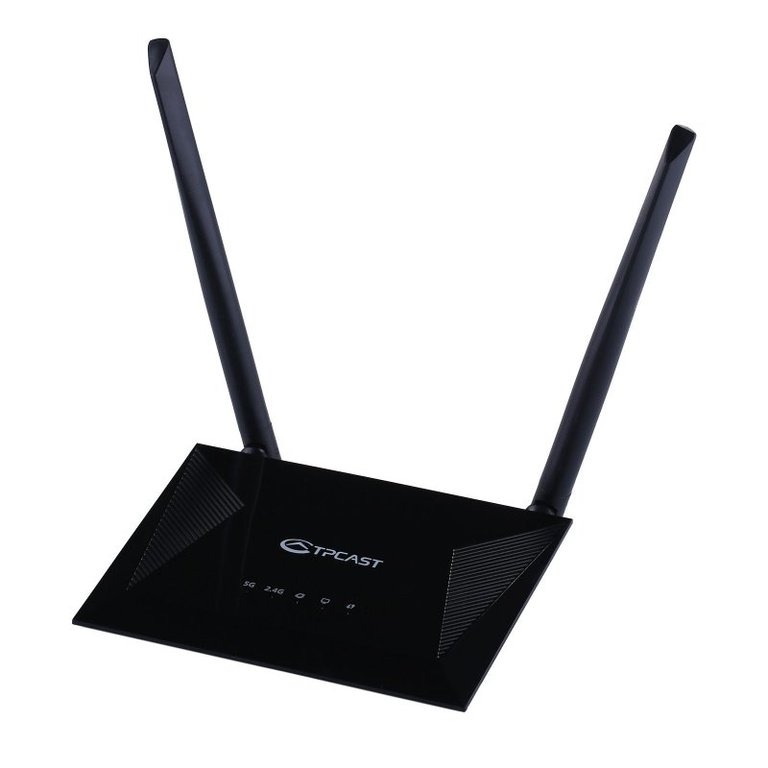That damned cable
If you have ever used a PC or console powered VR headset, you were probably amazed by the experience. You can get really lost in a good game, until you walk to far away from the machine powering it and you feel that damned cable tucking on your head or neatly snaked around your foot.
Over time, many of us have developed a good "cable sense", helping us to avoid tripping over it and even giving us cues where we are in the room. For the most time, I never found the cable to be a problem. Yes, it was annoying, but I never hated it. Until I tried wireless VR.
Cue TPCast, the only wireless game in town right now.

TPCast as a device is hot garbage, but when it works, it is amazing. Suddenly you feel free and 100% part of the virtual world, even more so than before. VR teleports you into a different world, but the cord is a constant reminder that you really belong somewhere else.
With a wireless VR headset, you almost immediately loose your sense of where you are in the real world and can be completely immersed in whatever you are doing in VR... until you hit the edge of your playspace anyways.
Since I have upgraded both my Vive and my Rift with a wireless system, I am enjoying VR a lot more.
As I mentioned earlier, TPCast is the only available wireless Adapter right now. It is clunky, expensive and the setup is a joke. TPCast started out as a wireless HDMI company and then pivoted to be a VR accessory
PivottingBut this also means that their system only really handles the video signal being beamed to your headset. There is more data to be transferred though. The headset needs to send its data (rotation of the IMU and controller data) back to the PC. So what do you do when time is in short supply and you promised your investors you'll be shipping soon? You Jerry rig the shit out of it.
 It even boots of the Raspbian loaded SD card
It even boots of the Raspbian loaded SD card
TPCast has a battery box thingy, but it doesn't just provide power to the headset, it actually houses a full mini computer running the same OS as a Raspberry Pi. It connects via standard 2.4 or 5 GHz wifi to a router that TPCast supplies. It's an off the shelf router running a custom firmware. The TPCast software on the PC establishes an USB-over-Ethernet connection (which they also bought in) to the power box and voila, here is the data back channel.
Premium price, amateurish execution
Well, it is a viable solution, sort of, but it literally is random parts cobbled together and not a stream lined consumer solution, especially for USD350.
And for that money you would expect the headset to be fully working, but it isnt:
Since the USB over Ethernet solution TPCast is licensing is super old, it doesn't support microphones, meaning multiplayer VR experiences follow the same rules as deep space: no-one can hear you scream.
Also, turns out their wireless system can't fully push all the pixel goodness over the air and they cut off the image on the sides, making the feeling of looking through a pair of toilet rolls even stronger.
And lastly: the software that enables the connection only works about half the time, requiring a full system reboot to improve the situation.
 The device that has total control over your internet
The device that has total control over your internet
But there is more: When you setup TPCast the way they recommend it, you end up routing your complete internet traffic through a router that you have no control over. Thats sketchy as hell. Even aside the privacy concerns, it breaks almost everything that relies on directly accessing your ports, i.e. hosting game servers, etc.
Security?
Also, guess what the password for that router is. It is 12345678, not kidding. A later version of the router has the password 8427531, and it is the same for all of them. The battery box can be reached directly via SSH, with the slightly more secure (but not really) password 1qaz2wsx3edc4rfv (look at your keyboard)
Even TPCast knows how bad their device is, so they announced a new version of the system that fixes some of the issues and comes with a single USB dongle instead of a router. They did this less than 3 weeks after they started shipping the Oculus Rift version of the system, instead, let's say, pushing an update to their broken software.
But being built from parts you can find in your local bestbuy also has an advantage: you can hack the shit out of it. And people have.
Cue OpenTPCast
https://github.com/OpenTPCast/Docs/blob/master/README.md
OpenTPCast fixes some of the issues, but requires another purchase. The community has replaced the USB over Ethernet stack with another commercial solution, this time one that actually works. It still doesnt fix the image cutting off issue and requiring a separate router though, but at least the microphone works and software doesn't crash.
Would I recommend wireless VR? Absolutely. Would I recommend TPCast. Absolutely not.
So what's on the horizon? Lots, actually. Intel is working on their wireless tech and HTC has announced their own wireless Adapter based on it for q3 2018. There is also a bunch of other companies working on systems and there will be standalone headsets that have inside out tracking and some even full tacked hand controllers. All of this will bring us one step closer to truly wireless VR.
Conclusion
If you don't want to live on the bleeding edge, I would recommend waiting for reviews on those new systems. But if you absolutely must have wireless VR now and can live with the tradeoffs, you will be amazed how you were able to use VR without it.
Disclaimer: I work neither for TPCast nor am I affiliated with the OpenTPCast project
Good work.....
Those security issues are something out of a bad story. Or.. they will be if they're not closed up. haha
Congratulations @skyworxx! You received a personal award!
Click here to view your Board
Congratulations @skyworxx! You received a personal award!
You can view your badges on your Steem Board and compare to others on the Steem Ranking
Vote for @Steemitboard as a witness to get one more award and increased upvotes!